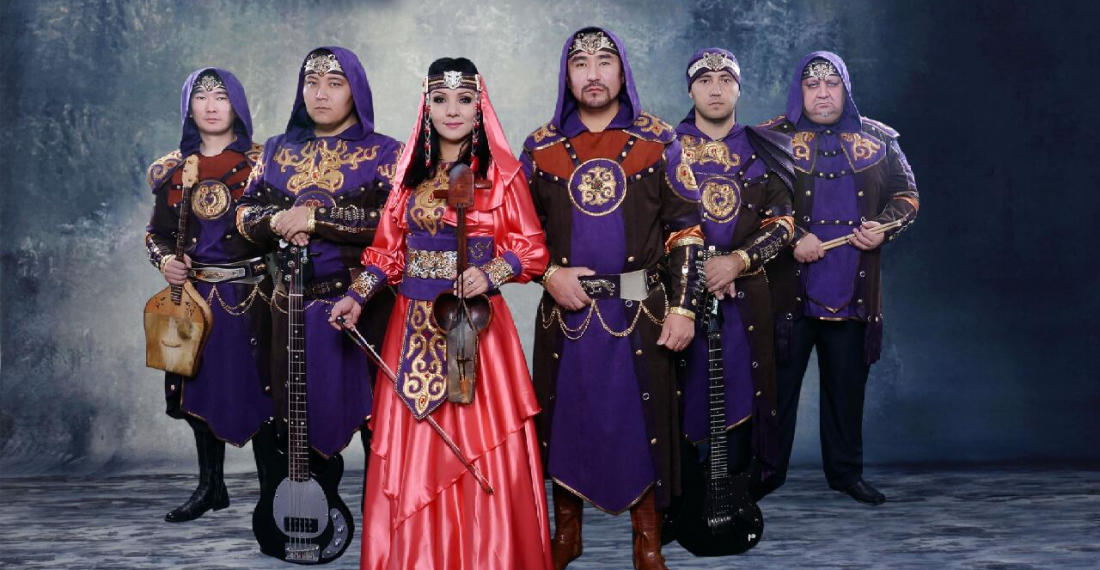Putin’s catastrophic full-scale invasion of Ukraine has created ripples throughout the post-Soviet space, not seen since the collapse of the Union itself in 1991. One region where change is in the air is Central Asia, where modest processes of reform and political and economic change had already started, but have, since February, considerably accelerated. The impact of this is likely to be felt right across society including in the cultural sphere. An upsurge in revivalist cultural shifts is bound to take place in the coming years, writes Patrick Norén in this op-ed for commonspace.eu.
The notion of cultural revival is a post-colonial syndrome in which nations, being freed from colonial oppression revive past eras’ traditions and practices that they consider to be representing or hailing from a prelapsarian time or place. The idea is not to reconstruct their national identity anew per se, but to reimagine and reinvent the tropes of the past, in the present, to point their people towards a strong and independent cultural future, separate from the memory of their former imperial oppressor.
In the post-Soviet space, the clearest example of this phenomenon is Ukraine which, since 2004 but more so since 2014, and again in 2022, has exhibited an extremely impressive inventiveness in reimagining its past in an updated, 21st-century format. The cultural memes considered to be truly and uniquely Ukrainian, such as hutsuls, cossacks, vyshyvankas, vinoks, trembitas, sopilkas, tsymbaly, and, of course, the language itself, have been convincingly and successfully revived today cementing Ukraine’s self and international perception as a modern country that refuses to neglect its ancient past. Think of President Volodymyr Zelensky’s army-green vyshyvanka - a traditional Ukrainian shirt - embroidered with traditional Ukrainian patterns, figurines…and a tank. Ukraine has shown through its cultural revival that it is an ancient country that has a rightful place in the contemporary cultural arena.
Although not fighting an existential war, the five Central Asian nations of Kazakhstan, Uzbekistan, Kyrgyzstan, Tajikistan, and Turkmenistan have all of a sudden found themselves somewhat liberated from any lingering hangovers that may have persisted since 1991. Indeed, while Central Asia sat uncomfortably in the Soviet Union, with its traditional cultures bearing little resemblance to Soviet proletarian culture, its coming economic and political resurgence presents a fertile ground for the kind of cultural revival we have already witnessed in other post-Soviet countries like Ukraine, Georgia, and Azerbaijan.
Of course, the notion of “revival” necessitates bringing those cultural memes considered dead or dying, back to life. In Central Asia, the basis of this revival will almost certainly lie in the traditional nomadic cultures for which the region is famous, but are slowly disappearing in the face of globalisation. This, as has happened in Ukraine, will include the revival of music, artwork, film, food, and clothes, harking back to the region’s pre-Soviet past to construct an image of its post-Soviet future.
We are also increasingly seeing language politics bubble up as a central issue in the Central Asian space, another symptom of cultural revival. While the latinisation of Turkmen and Uzbek is well-known, recent developments clearly point in a similar trajectory. At their meeting in late August, the President of Azerbaijan Ilham Aliyev, and the President of Kazakhstan, Kassym-Jomart Tokayev, refused to communicate in Russian, instead preferring to speak their own national languages. On Wednesday (9 November) Kazakhstan also announced that it will make knowledge of the Kazakh language a requirement to obtain citizenship, a move praised in nationalist circles. Just as Russian is being pushed out of the Baltic States and the South Caucasus, we will see the same trends occurring in Central Asian culture too.
But before we get too carried away, one must stress that “revival” does not mean “reversal”. The success in a cultural revival lies not in how many different traditional cultural memes it can resurrect and exhibit, as if in a museum, but how well it can adapt them to the 21st century. While there has indeed been a concerted effort in Central Asia in recent decades to “go back to their roots”, the point of a cultural revival is to demonstrate a country’s future just as much as its past. This is where Kazakh, Uzbek, Kyrgyz, Tajik, and Turkmen producers of culture will have to show ingenuity and creativity in their revivals, translating tropes that stretch back millenia into convincing contemporary cultural production. How they will bridge this divide and marry the old with the new will be challenging, and one which cultural analysts will be keeping a keen eye on.
Particularly in the musical arena, there are a number of artists that Central Asian producers could use as inspiration, for example Ukraine’s hit electro-folk band Go_A, or Mongolia’s hugely popular folk-metal band, The HU. In fact there are rumblings of this Central Asian revival already afoot; one need look no further than the Nomad Games and Almaty's "Spirit of Tengri International Festival of Ethnic Music" for two examples. In any case, the vacuum left behind by Russia’s slow withdrawal from the region will not only likely be filled by a resurgent Central Asian economy and politics, but be accompanied by an exciting new chapter in the region’s cultural sphere too.
source: Patrick Norén is the Deputy Editor of commonspace.eu.
photo: Kazakh ethno-pop band, Tigrahaud. The Edge.
The views expressed in opinion pieces and commentaries do not necessarily reflect the position of commonspace.eu or its partners.







